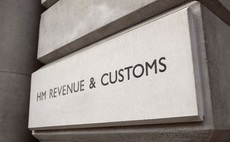Government to abolish laws protecting taxpayer privacy to sell "anonymised" information about taxpayers
HM Revenue & Customs, the UK's tax authority, is planning to sell taxpayers' financial data to private organisations. Treasury minister David Gauke is overseeing the plans and the government ins...
To continue reading this article...
Join Computing
- Unlimited access to real-time news, analysis and opinion from the technology industry
- Receive important and breaking news in our daily newsletter
- Be the first to hear about our events and awards programmes
- Join live member only interviews with IT leaders at the ‘IT Lounge’; your chance to ask your burning tech questions and have them answered
- Access to the Computing Delta hub providing market intelligence and research
- Receive our members-only newsletter with exclusive opinion pieces from senior IT Leaders




















